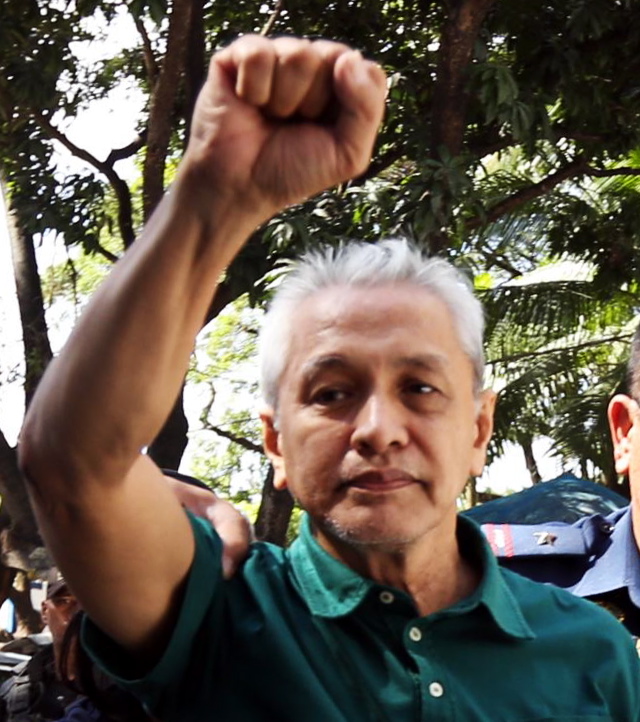
National Democratic Front of the Philippines (NDFP) consultant Vic Ladlad. INQUIRER FILE PHOTO
MANILA, Philippines — Freezing the two bank accounts of National Democratic Front of the Philippines (NDFP) consultant Vicente Ladlad is the same as invalidating his claims to justice as a martial law survivor, according to a human rights group.
Karapatan Alliance for the Advancement of People’s Rights on Tuesday said the freeze order showed the impact of the antiterrorism law on civil liberties, even as it was being challenged by petitioners before the Supreme Court.
“The freezing of his accounts and future attempts of civil forfeiture [do] not only deny Ladlad’s right to use the said funds for his medical needs; [these] also [seek] to invalidate his claims to justice,” Cristina Palabay, secretary general of Karapatan, said in a statement.
Last month, Ladlad’s wife, Fides Lim, asked Benjamin Diokno, governor of the Bangko Sentral ng Pilipinas and chair of the Anti-Money Laundering Council (AMLC), to lift the freeze order, calling it “immoral and reprehensible.”
According to Lim, her husband’s bank accounts consisted “solely and purely” of the compensation he received as a martial law victim: in 2018 from the Human Rights Victims’ Claims Board and in 2019 from the human rights class suits filed in relation to abuses during the martial law period.
Ladlad, who was arrested in November 2018 on an illegal possession of firearms charge, was among those tagged by the Anti-Terrorism Council as key members of the Communist Party of the Philippines. With this, the council authorized the AMLC to freeze his assets under the terror law.
Aside from his bank accounts, those owned by the United Church of Christ in the Philippines-Haran Center and Rural Missionaries of the Philippines were also frozen by the council through the Terrorism Financing Prevention and Suppression Act, Palabay said.
Karapatan asserted that both were humanitarian organizations, not terror groups.
The practice of freezing assets, according to Palabay, is also being done in other countries where counterterror laws are used to stifle dissent and derail the activities of civil society actors.
Karapatan called on the Supreme Court to declare the antiterrorism law unconstitutional in light of these recent incidents.
“With the antiterrorism law, these unjust and arbitrary acts are now being done in the Philippines,” it said. INQ